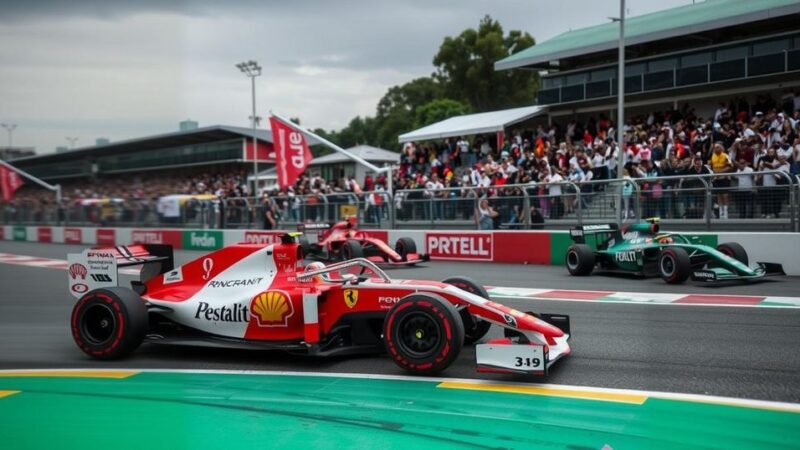Oil prices have surged in response to escalating conflicts in the Middle East, raising questions regarding their impact on the upcoming election. Prices increased 13% but saw a decline recently without an expected Israeli counterstrike. Experts suggest that while consumer sentiment may shift with rising gasoline prices, the current increase is insufficient to significantly influence the election outcomes, as voters typically evaluate economic conditions over a longer timeframe.
Oil prices have recently experienced a significant surge due to the exacerbating conflict in the Middle East, raising questions regarding potential implications for the upcoming presidential election. Over an 11-day period concluding on Monday, oil prices skyrocketed by approximately 13%. However, there was a notable decrease in prices on Tuesday, coinciding with the expectation of an Israeli counterattack on Iran not materializing. Experts indicate that an increase in crude oil prices typically leads to higher gasoline prices, which in turn can greatly influence consumer sentiment. Despite the recent volatility, experts maintain that the current increase is insufficient to make a considerable impact on the election. It has been highlighted that even a modest hike, potentially around 50 cents per gallon, could draw public attention, but such an increase remains unlikely. According to Denton Cinquegrana, chief oil analyst at the Oil Price Information Service, “People use gasoline as a gauge of the economy and how they’re feeling about it.” Additionally, Jon Krosnick, a professor of political science at Stanford University, pointed out that voters tend to evaluate economic indicators over the long term rather than short-term fluctuations. Following the Iranian strike against Israel, analysts projected a gasoline price increase between 10 and 15 cents per gallon, which is not anticipated to significantly affect election outcomes. While recent trends show a decrease in fuel prices over the past year, the potential for escalation in the Middle East conflict poses a risk for increased oil prices due to limited Iranian production and transport capabilities through the Strait of Hormuz. This geopolitical tension could lead to a significant rise in costs, which might negatively impact Vice President Kamala Harris’s approval ratings should voters associate the price hikes with the current administration. However, Krosnick noted, “There isn’t enough time for there to be a sustained change in prices,” highlighting that the public’s emotional response to gas prices would not necessarily translate into immediate political consequences. Ultimately, while there exists a possibility of fluctuating gas prices impacting consumer sentiment, the question of whether they would directly influence the election remains complex and uncertain.
The escalating conflict in the Middle East, particularly the recent tensions involving Iran and Israel, has precipitated notable increases in oil prices. As global oil supply dynamics are intricately linked to political stability in the region, fluctuations in oil prices can have significant economic implications, especially concerning consumer behavior related to gasoline prices. Historically, rising gas prices tend to correlate with diminished consumer sentiment, which can ultimately affect electoral outcomes. The ongoing situation requires an examination of how these economic indicators intertwine with political perceptions ahead of the presidential election.
In summary, the recent surge in oil prices associated with the Middle East conflict carries potential implications for the upcoming presidential election. While experts view the current situation as unlikely to have a tangible impact, any substantial rise in gasoline prices could sway consumer sentiment. However, due to the complexity of public perceptions and the notion that voters assess the economy over the long term, any immediate consequences on the election remain uncertain. Monitoring developments in the Middle East is crucial to understanding potential economic ramifications in the context of electoral politics.
Original Source: abcnews.go.com







